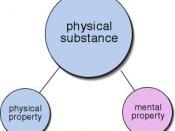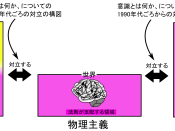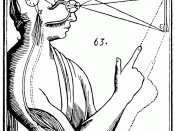The concept of dualism states, in essence, that every human being is divided into two parts in which the mind and the body are considered as different from each other. The body belongs to the physical element while the mind belongs to the intellectual element. This is the basic concept of dualism. Material substance is defined as physical and is asserted to be the underlying reality of the empirical world, i.e., the world we see, hear, etc., and measure with our senses and technical instruments that extend the range of the senses, such as electron microscopes, telescopes, radar, etc (Carroll, 2005). If, conversely, dualism can be convincingly maintained, it is by no means obvious that empirical evidence is enough for a thorough understanding of the mind -- in other words, understanding the brain may not be enough for understanding the mind (Eliasmith, 2004).
1. Concept Materialism
Then there is the concept of materialism, which states in essence that all things that exist are simply called as material.
Characterized in this way, as a doctrine about what exists, materialism is an ontological, or a metaphysical, view; it is not just an epistemological view about how we know or just a semantic view about the meaning of terms (Trout, J. and Moser, P., 2004). According to the research of Trout and Moser (2004), "there are two prominent construal of 'material'; first, according to many philosophers, something is material if and only if it is spatial, extended in space; One might thus propose that what it means to say that something is material is that it is extended in space." This construal of 'material' is inspired by Descartes's influential characterization of material bodies, in Meditation II (Trout, J. and Moser, P., 2004). Given this construal, materialism is just the view that everything that...


